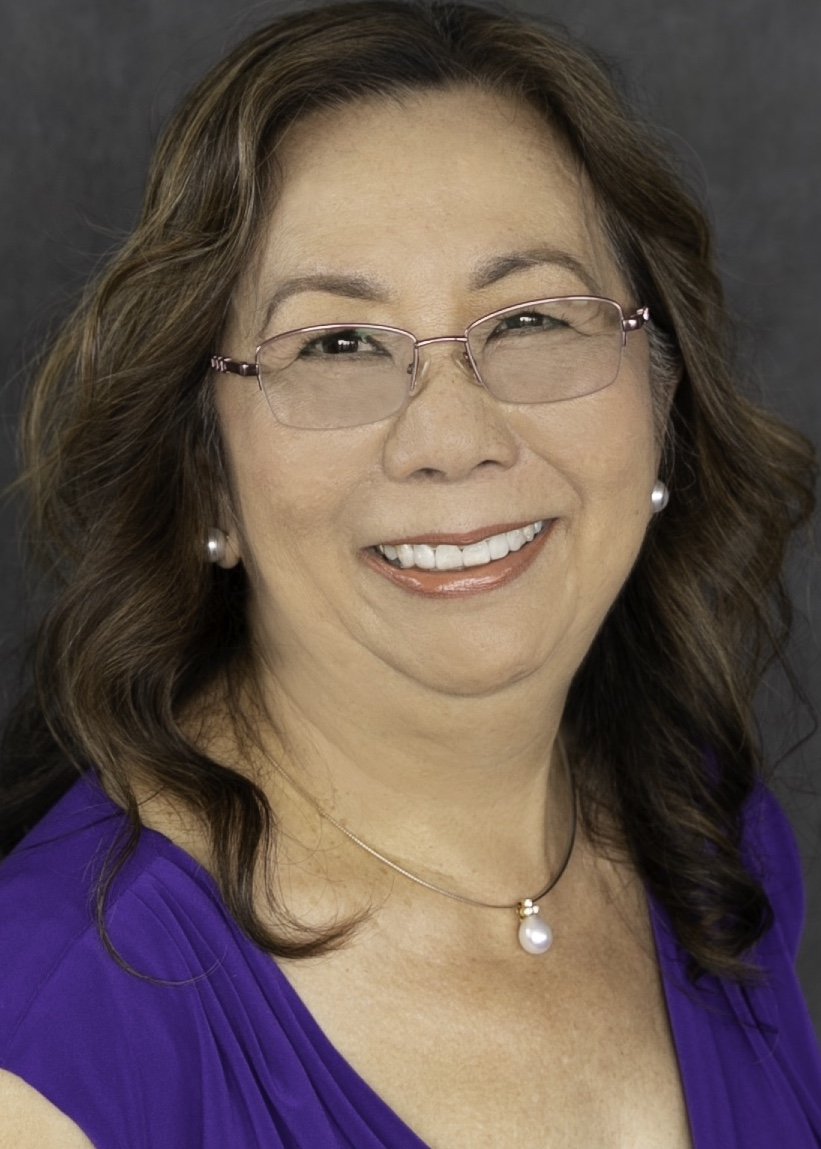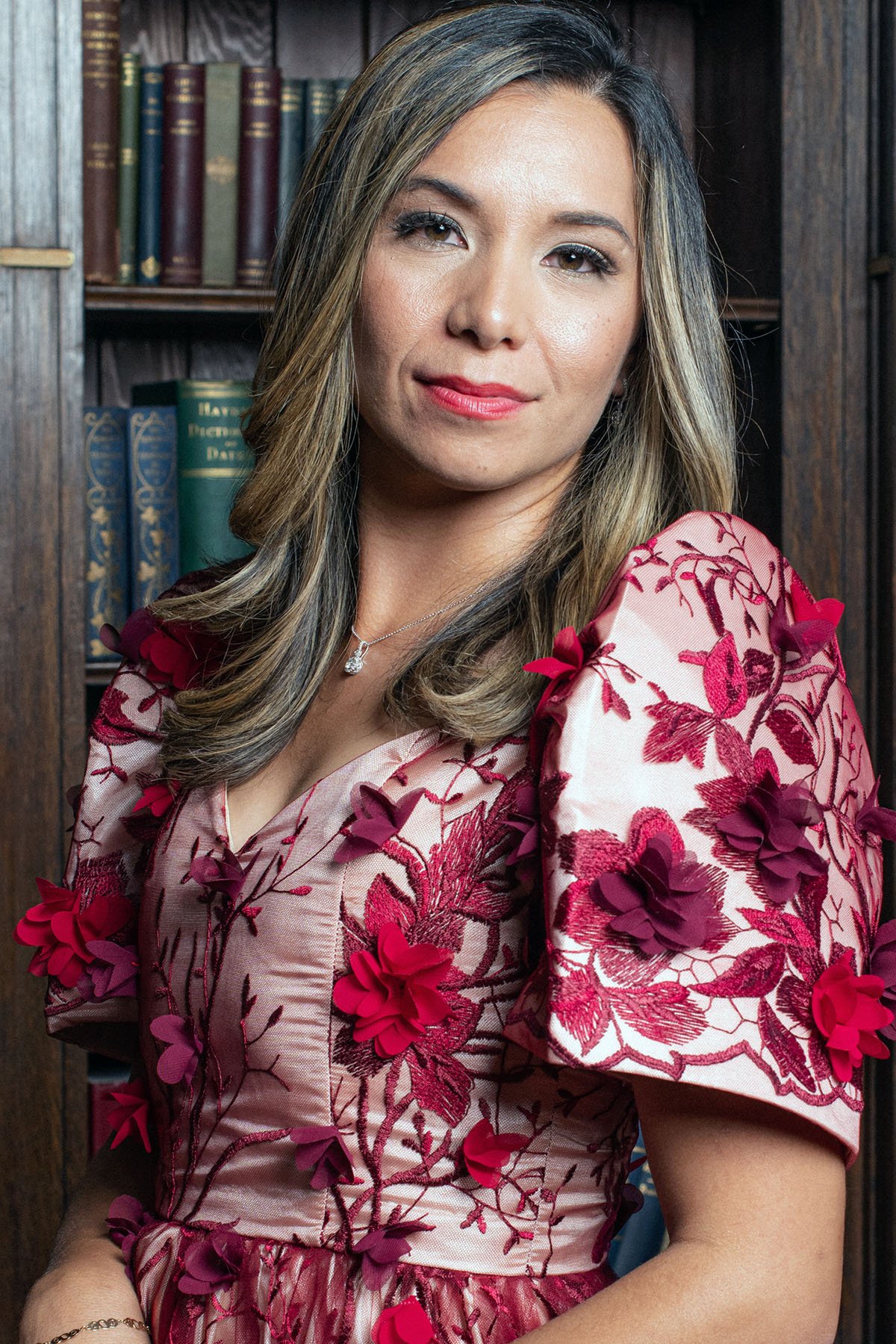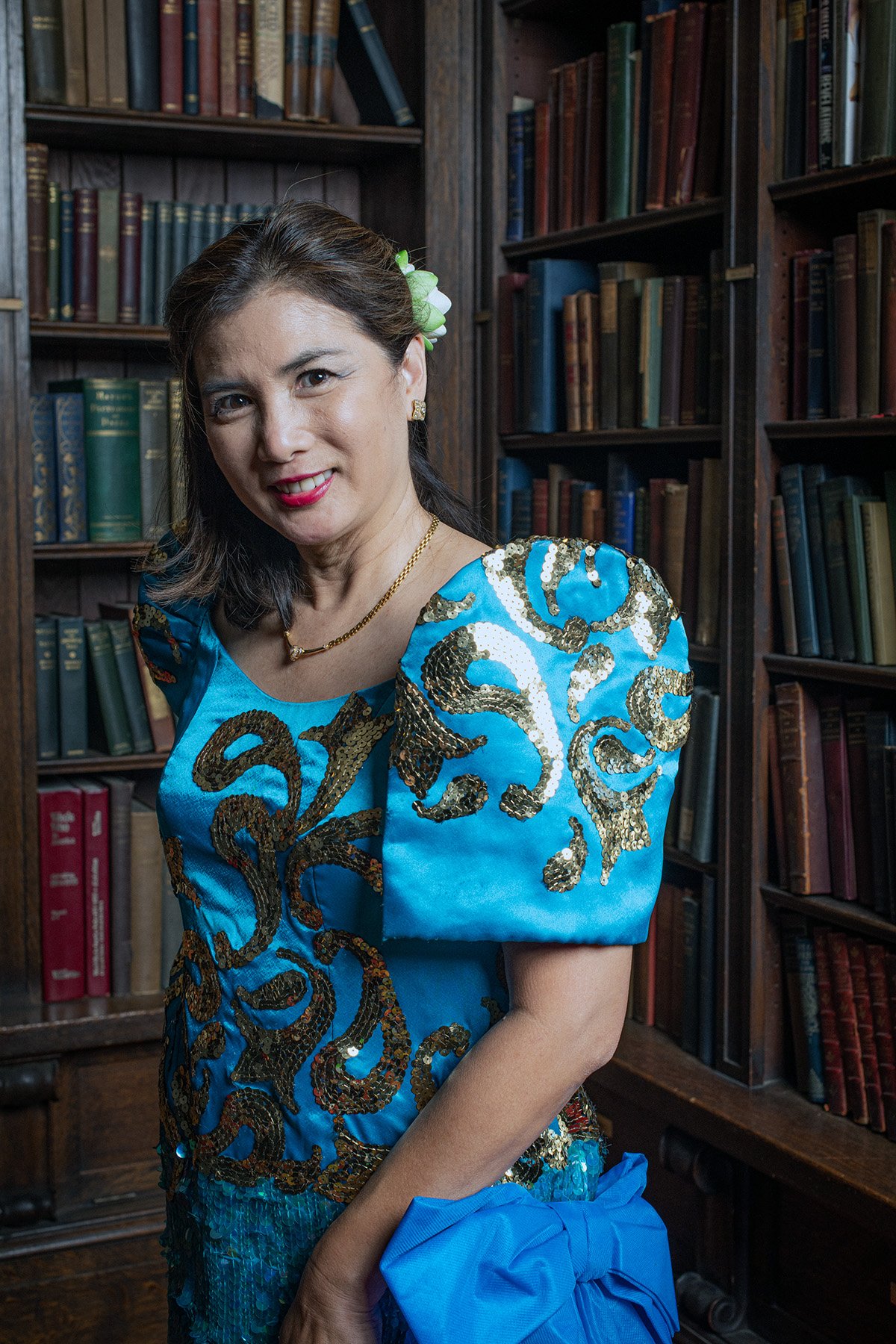07 January 2022
Edith Winterhalter Ed.D
Global FWN100™2017
Associate Vice President for Budget and Strategic Business Operations
California State University Northridge
RSVP @ https://www.ffwn.org/events
Zoom link to attend: https://on.ffwn.org/2OabvYY
Check the time zone in your area: https://www.thetimezoneconverter.com/
"Physical Learning Spaces and College Students with ADHD"
Edith was inspired to focus her dissertation when her twin sons were diagnosed with ADHD and their learning journeys became a family concern. An increased number of college students with ADHD has outcomes that are less than optimal. Although these students are offered accommodations in higher education, one area that needs further investigation is whether existing and planned physical instructional spaces facilitate their success. This study explored the impact of physical instructional spaces on the learning experiences of college students with ADHD.
Editha Tijamo Winterhalter has twenty years of experience in the higher education sector. She is the Associate Vice President for Strategic Business Operations at California State University, Northridge (CSUN). In this role, she has responsibilities of overseeing the divisional budget, supporting the Chief Financial Officer in various programs and initiatives, and supervising the campus risk management program. Prior to this, she was the Director of Academic Budget Management where she had supervisory roles in budget and finance, facilities planning, enrollment planning, and other academically-related programs. Edith earned her Doctorate of Education, Master’s Degree in Education, and Bachelor of Science in Accountancy at CSUN.
14 January 2022
Janice Lao-Noche
Global FWN100™2014
ESG Director, Helen of Tory
El Paso, TX
Fridays: 8AM-9AM PST
RSVP @ https://www.ffwn.org/events
Zoom link to attend: https://on.ffwn.org/2OabvYY
Check the time zone in your area: https://www.thetimezoneconverter.com/
"Everything You Wanted to Know About Climate Change, but too confused to ask"
Weather and temperature records have been broken in recent years, why is climate change the defining problem of this century? Experts say we only haveeight years left to stem the catastrophic impacts of climate change. Is this true or alarmist? Global FWN100™ 2014 awardee Janice Lao-Noche, an environmental scientist, will elucidate how a changing climate will change the way we live and what actions we can take to save our planet.
Janice Lao-Noche is an internationally multi-awarded environmental scientist and economist working with businesses so they can be a force for good for the world. For over 20 years, her work has been recognized by Forbes Magazine as one of the world’s most influential sustainability leaders, Fortune Magazine named by Greenbiz as the 25 Most Influential Women in climate change. Her first book “Sparky & Benny’s Big Home Mystery” about climate change won the 2021 Excellence in Literature Awards, was co-written with her young daughter, Esther.
21 January 2022
Maria Beebe Ph.D
Global FWN100™2013; Global FWN100™ Continuing Influential 2019
President, Kaisipan
Naples, FL
Fridays: 8AM-9AM PST
RSVP @ https://www.ffwn.org/events
Zoom link to attend: https://on.ffwn.org/2OabvYY
Check the time zone in your area: https://www.thetimezoneconverter.com/
"The Language of Credit in a Rural Setting in the Philippines"
"Did the farmers profit from this credit program?,"asks a development agency official to the director of a Filipino credit program. "Natuto na po silang magkaisa." (They have learned to work as one), the director replied. The question is a request for financial accounting. The response is a social accounting. This verbal exchange about an economic activity is circumscribed by social interaction. The observation of problems with attempts to provide formal credit to farmers and differences in perceptions about the factors related to these problems provide the impetus for this study.
This study aims to examine the meaning of credit in a rural Philippine setting. The key to understanding the meaning of credit is the relationship between (a) Tagalog-based Filipino language structures and other discourse properties and (b) Filipino social structure and processes. Talk about credit defines not only economic obligations but also social obligations. While structures do not always equate with "social meaning," language structure, especially when examined in the context of social exchanges, can suggest "social meaning."
Maria Beebe, PhD has an M.A. in Social Science and Ph.D. in Education from Stanford University. Her research and advocacy interests include critical discourse analysis, women's leadership, and information, communication technologies (ICT) for development.
Maria co-edited three FWN books about Filipina women and leadership; DISRUPT1.0. Filipina Women: Proud, Loud, Leading without a Doubt (2014); DISRUPT2.0. Filipina Women: Daring to Lead (2016); and, DISRUPT3.0. Filipina Women: Rising (2018) during her term as a board member of the Filipina Women's Network (FWN). The editing experience became a coaching and mentoring exercise to help authors articulate their leadership journeys. In addition, Maria participated in book readings in London, Toronto, Barcelona, and various cities in the Philippines and in the U.S.
Maria launched Kaisipan, as a passion project, in June 2020 to address the skill sets related to the Programme for International Student Engagement (PISA) using information and communication technologies. (ICTs). Kaisipan’s mission is to improve the digital capabilities of Philippines educators to transform learning and teaching. By digital capabilities, Kaisipan means a set of cognitive, technical, and humanizing competencies to iLEARN, iCREATE, iSHARE using iCTs.
28 January 2022
Cynthia Rapaido Ph.D
US FWN100™2011
Field Supervisor, School of Education, Teacher Education Department
California State University, East Bay
Doctoral Advisor, School of Education, Education Leadership Department
Edgewood College, Madison, Wisconsin
Fridays: 8AM-9AM PST
RSVP @ https://www.ffwn.org/events
Zoom link to attend: https://on.ffwn.org/2OabvYY
Check the time zone in your area: https://www.thetimezoneconverter.com/
"Filipino American Educational Leaders in Northern California k-12 Public Schools: Challenges and Opportunities"
The assumption that all Asians are model minorities is incorrect. The largest group of Asian American people is comprised of Filipino people followed closely by Chinese people; although Filipino people comprise the largest population, they lag behind Chinese and other Asian American groups with respect to academic achievement. Hence, Filipino American people are underrepresented as educational leaders in K–12 public schools in California.
Compared to other Asian ethnic groups, Filipino American people have (a) a lower achievement level for academic success, (b) a lower percentage enrolled in college in the United States, (c) a lower percentage 25–29 years of age graduating with bachelor’s degrees or higher in the United States, and (d) a lower percentage graduating with bachelor’s degrees or higher from California universities. Also, Filipino American people have (a) a lower percentage of their population compared to other racial groups pursuing and receiving degrees in education in California, (b) one of the highest rates of suicide ideation, and (c) one of the highest dropout rates in the United States and in California.
A narrative, qualitative research approach was used for this study, involving one- on-one interviews with 6 selected participants. The findings revealed personal (family obligations, academic identity, and ethnic identity) and professional (culture shock, cultural-value clashes, marginalization, lack of role models, commitments and demands as educational leaders, and conflict with upper management) challenges encountered, the factors that influenced career paths, and the factors that influenced motivation, perseverance, and the development of Filipino American educational leaders. Factors that influenced participants’ career paths were parental expectation, a low opinion of educational careers, and lack of support and encouragement.
Factors that influenced the motivation, perseverance, and development of Filipino American leaders in higher education and in educational leadership were faith and religion; family encouragement and support; school involvement; support from professional or cultural organizations and from academic programs; positive attitude, and being proactive and adaptable; and motivation and interest in the development of Filipino American educators.
This research yielded recommendations for professional practice including the need to develop culturally competent educators, educational leaders, and policymakers.
Cynthia Rapaido earned her Ed.D. in International and Multicultural Education, M.A. in Ed. Administration, and B.S in Biology. Her dissertation research was titled Filipino American Educational Leaders in Northern California K-12 Public Schools: Challenges and Opportunities. She served in public education for 30+ years as a high school principal, assistant principal, and science teacher. She currently works as a doctoral advisor in Education Leadership and a field supervisor in Teacher Education. She was honored 100 Most Influential Filipinas in the United States Award from Filipina Women’s Network; Secondary Co-Administrator of the Year Award from Assn. of Ca. School Administrators; and Assistant Principal of the Year State Finalist Award for the State of California from National Assn. of Secondary School Principals.
04 February 2022
Alicia del Prado Ph.D
Global FWN100™2021
Faculty Member, Wright Institute
Berkeley, CA
Fridays: 8AM-9AM PST
RSVP @ https://www.ffwn.org/events
Zoom link to attend: https://on.ffwn.org/2OabvYY
Check the time zone in your area: https://www.thetimezoneconverter.com/
"Culture Matters: an Enculturation Scale for Filipino Americans”
Cultural values and practices are important to assess when treating the health and well-being of Filipino/a/xs. Dr. Alicia del Prado published the first Enculturation Scale for Filipino Americans (ESFA) in 2010 to help meet the psychological needs of the Filipino community. The ESFA is a valid and reliable measure with three scales: Connection with Homeland, Interpersonal Norms, and Conservatism. Join Alicia to learn more about the ESFA, understand how it correlates with mood and other health variables, and consider applications of the ESFA in your professional fields.
Alicia del Prado, PhD is a licensed psychologist, consultant, author, and tenured faculty member at the Wright Institute in Berkeley. Dr. del Prado earned her PhD in counseling psychology from Washington State University, her Bachelor of Science in Psychology from Santa Clara University, and completed her predoctoral and postdoctoral training at UC Berkeley. Dr. del Prado specializes in diversity, equity, and inclusion (DEI) work. She created the first enculturation scale for Filipino Americans and has co-authored numerous publications on cross-cultural studies of personality, cultural competency in psychology, and multiracial identity.
Her most recent publications include the storybook, “Proud of my Mommy” and “It’s Time to Talk (and Listen): How to Have Constructive Conversations About Race, Class, Sexuality, Ability & Gender in a Polarized World”. Dr. del Prado’s clinical expertise has been featured in a variety of news outlets, including NPR, the San Jose Mercury, Danville Living, and Better Homes and Gardens.
Dr. del Prado serves on the Editorial Board of the Asian American Journal of Psychology, is past chair of NCSPP’s Women’s Issues Committee, co-founder and past-chair of the Asian American Psychology Association’s (AAPA) Division on Asian Americans with Multiple Heritages, past co-chair of the AAPA Division on Filipino Americans, and past faculty chair of the Wright Institute’s clinical and counseling psychology programs.
11 February 2022
Denise Lopez Ph.D
Global FWN100™2021
Professor, Alliant International University
Los Angeles, CA
Fridays: 8AM-9AM PST
RSVP @ https://www.ffwn.org/events
Zoom link to attend: https://on.ffwn.org/2OabvYY
Check the time zone in your area: https://www.thetimezoneconverter.com/
"The Power of Self-Fulfilling Prophecies: How Leader Expectations and Attributions Can Affect Performance"
Positive and negative expectations can have a cyclical effect on how individuals set goals, perform, and explains their successes and failures. This has implications on the performance and self-image of women and minorities at school and in the workplace, since they are typically the recipients of low expectations by others (e.g., teachers and supervisors).
Dr. Denise Lopez is Professor of Organizational Psychology at Alliant International University, Los Angeles, CA. She teaches and conducts research on leadership, cultural diversity, employee engagement, and organizational change. She is also a credentialed executive coach. She received her MA and PhD from Columbia University, New York.
L-R: Edith Winterhalter, Janice Lao-Noche, Maria Beebe, Cynthia Rapaido, Alicia del Prado, Denise Lopez






